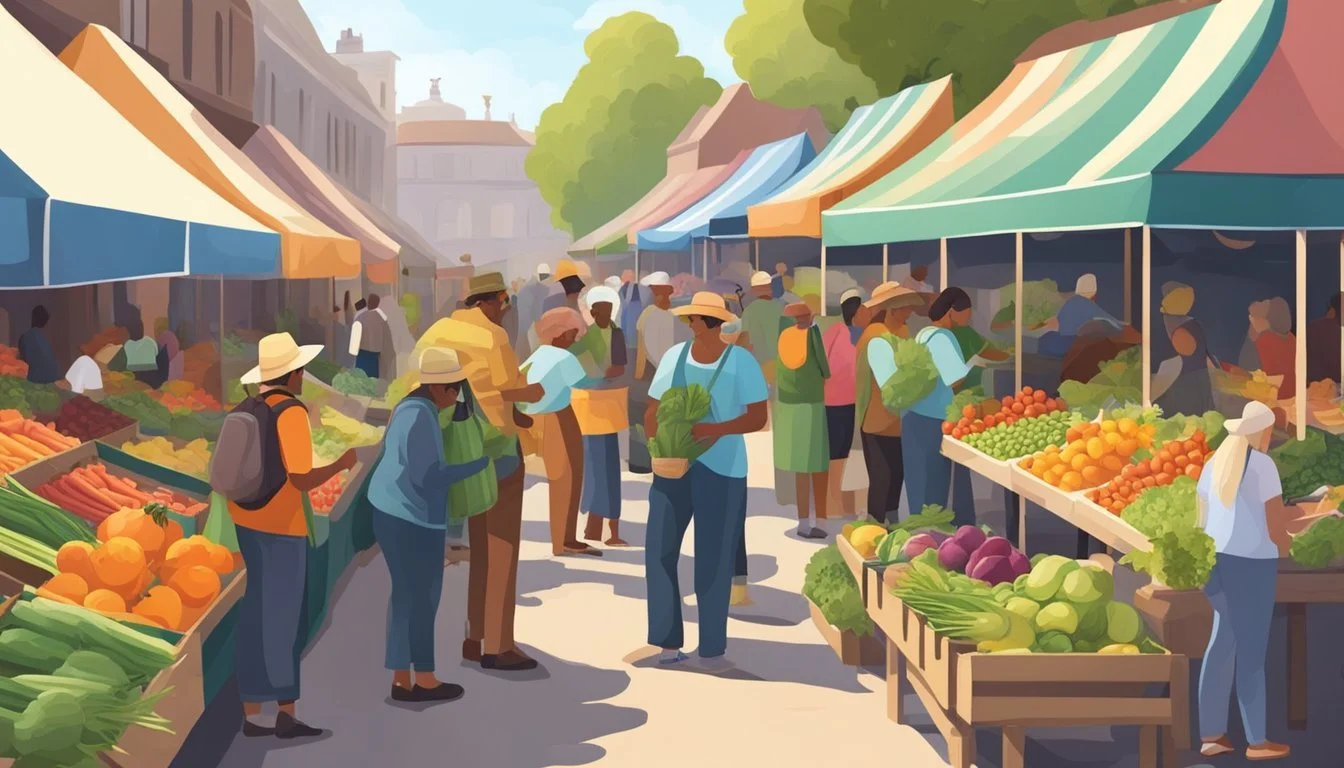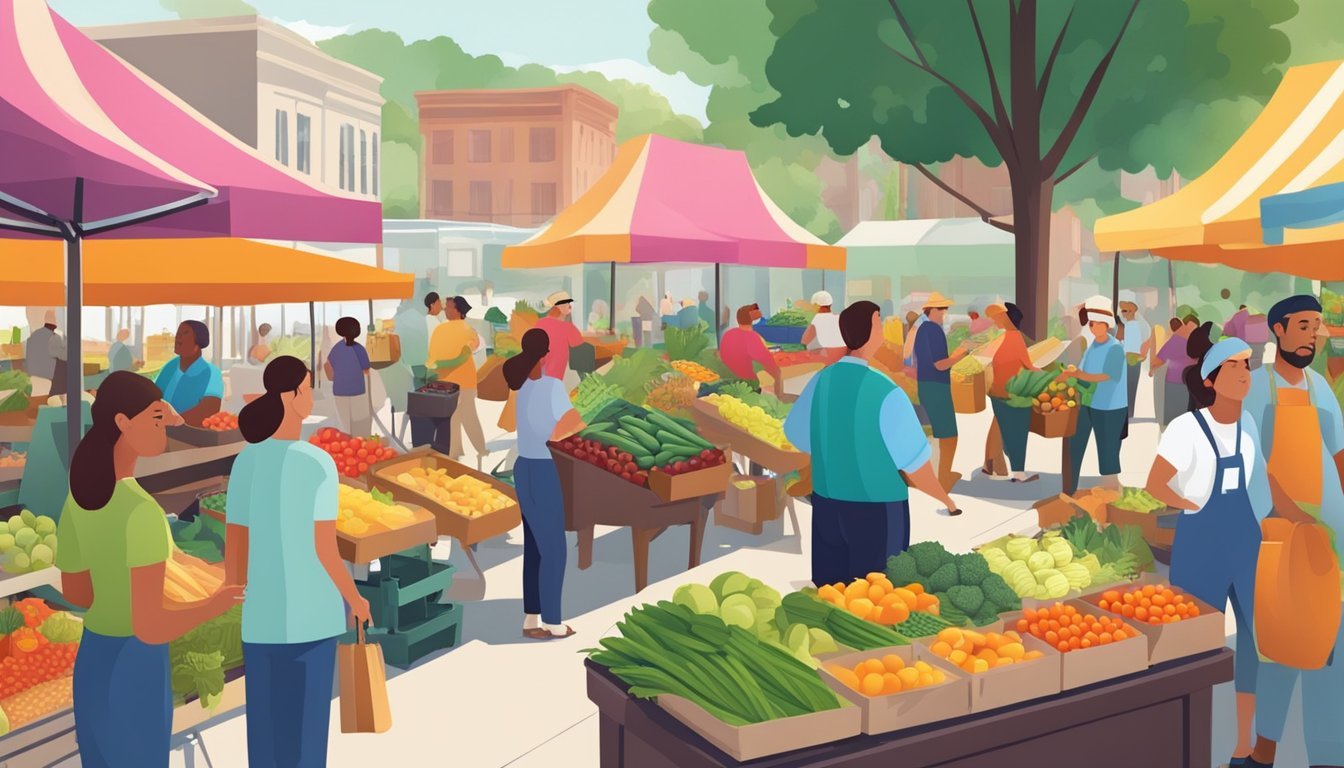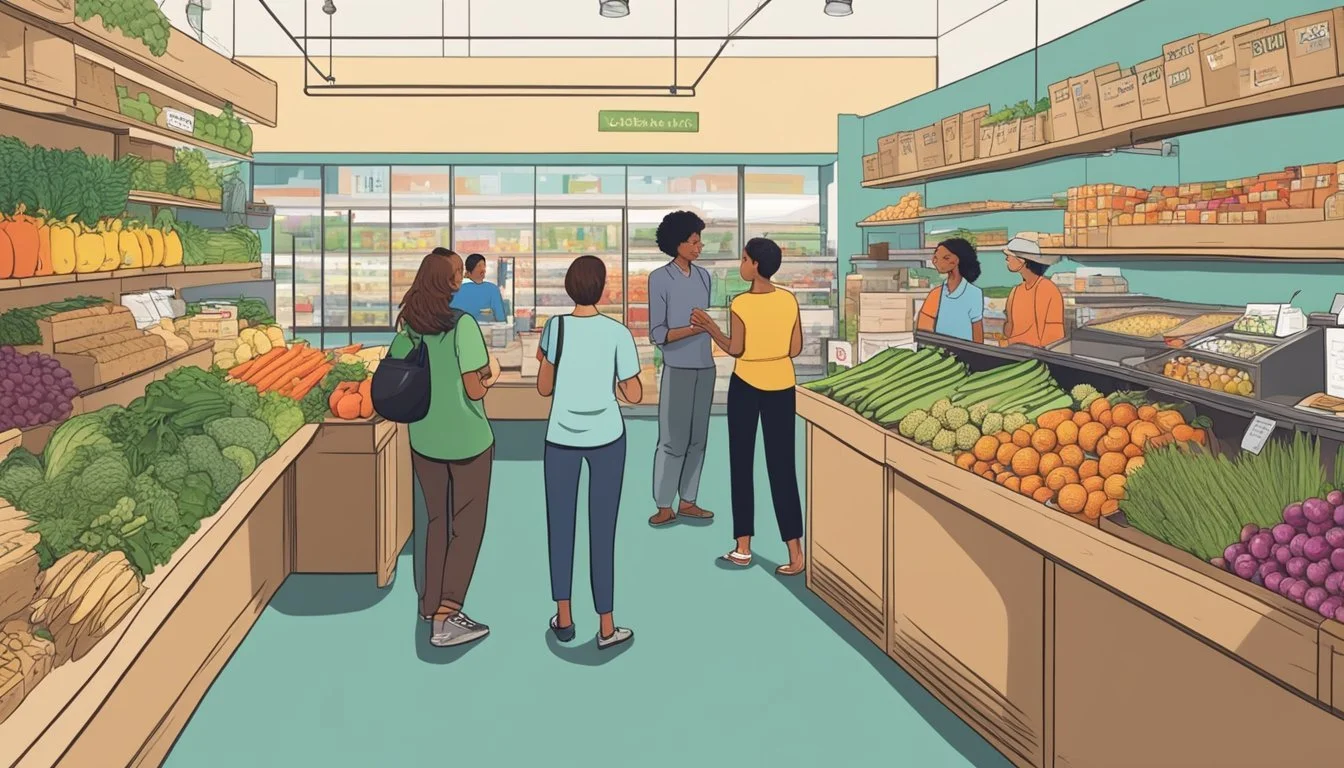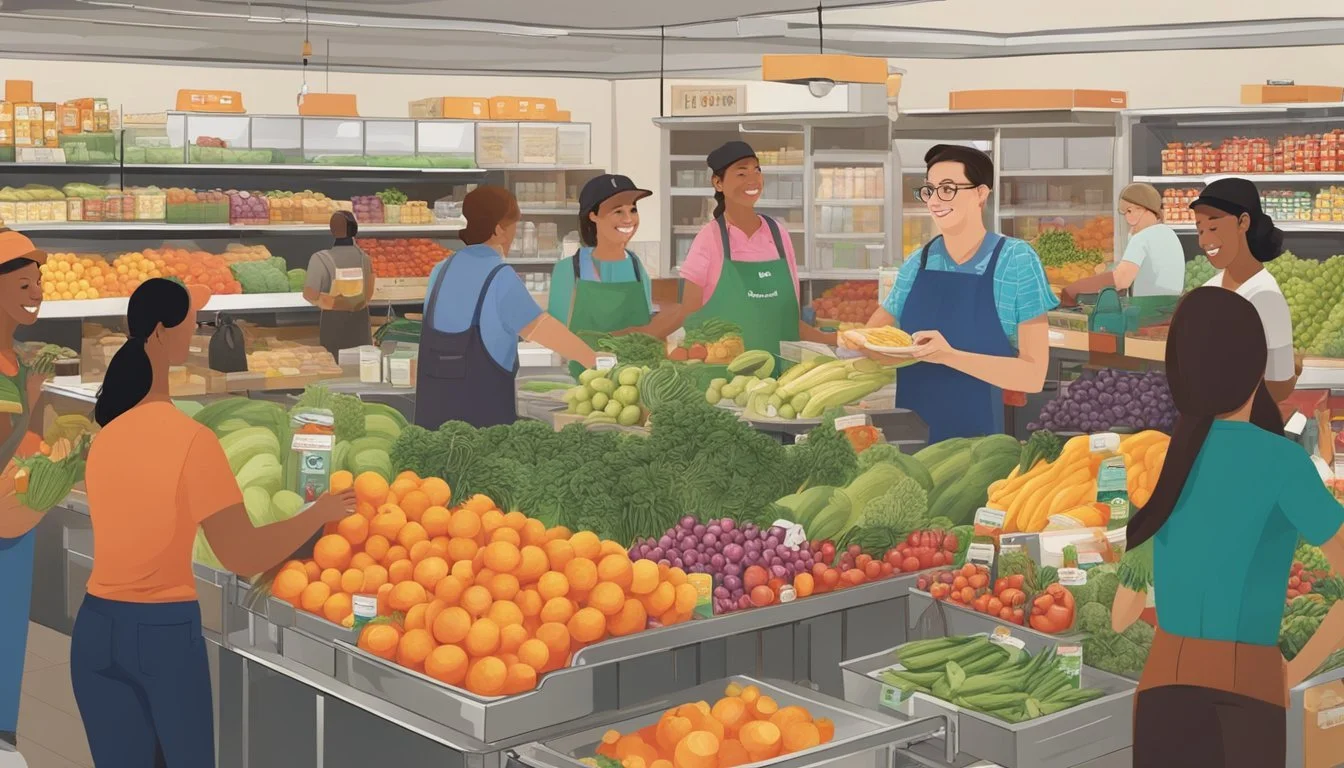Guide to Food Co-Ops in Los Angeles, CA
Your Essential Resource
Los Angeles, a bustling metropolis known for its diverse culture, is also a hub for health-conscious eaters and community-driven food initiatives. Food co-ops, or cooperatively owned grocery stores, offer an alternative to traditional supermarkets by focusing on locally sourced, organic produce and sustainable practices. These co-ops are more than just places to buy groceries; they are community-oriented spaces where members have a say in the business and benefit from a focus on quality and ethical sourcing.
In Los Angeles, various food co-ops serve different neighborhoods, each with its unique character and offerings. Co-opportunity Market, for example, has become a local favorite with its wide selection of organic and health-oriented products. These establishments typically prioritize organic stores, health markets, and feature a range of options from farm-fresh produce to ready-made food items crafted with well-being in mind.
The presence of food co-ops in Los Angeles represents a commitment to community health, local farmers, and the environment. They foster a sense of collective responsibility, offering a place for locals to make informed decisions about their food while contributing to the local economy. Each co-op has its own operational style, but they all share the common goal of providing a valuable, participatory service to their communities.
Benefits of Joining a Food Co-Op
Joining a food co-op in Los Angeles provides a multitude of advantages, from enhanced access to organic produce to community engagement and support for local agriculture.
Access to Fresh, Organic Produce
Members of food co-ops often enjoy access to a diverse selection of fresh, organic produce. These establishments prioritize stocking fruits and vegetables that are both locally sourced and organic, ensuring that members receive nutritious meals while also supporting sustainable farming practices.
Support for Local Farmers
Food co-ops play a significant role in bolstering local economies by partnering with local farmers. This not only provides members with the freshest products but also allows farmers to receive fair compensation for their produce, strengthening the community's economic base.
Educational Opportunities
Co-ops often offer various educational events focused on nutrition, sustainable living, and cooking with organic foods. On Saturdays and other scheduled times, members can participate in workshops and classes, providing them with the knowledge to make healthier food choices.
Community Building and Events
A central aspect of food co-op culture is community engagement. Members can attend events that foster a sense of community, from potlucks to local farm tours. These events serve as opportunities to meet like-minded individuals who are passionate about organic food, sustainable agriculture, and community wellness.
How Food Co-Ops Operate
In Los Angeles, food cooperatives operate on principles of shared ownership and democratic control. They prioritize community benefit over profits, which often translates into better prices and quality goods for their members.
Ownership and Governance
Food co-ops in Los Angeles are member-owned entities where each member has a vote in major decisions affecting the cooperative. Governance typically involves a board of directors elected by the members, who then oversee major policy decisions and the strategic direction of the co-op. Employees may also have a say in operations, reflecting their integral role in the cooperative.
Funding and Financial Structure
The financial backbone of a food co-op is its members' equity contributions, often supplemented by community fundraising efforts. They may also utilize loans or grants, but the emphasis is on self-funding through member investment. This structure allows co-ops to focus on providing value to their members rather than generating large profits for external investors.
Member Responsibilities and Benefits
Members of a Los Angeles food co-op have responsibilities which include financial contributions and sometimes a call to participate in volunteer work. In return, they receive various benefits:
Access to high-quality, fairly-priced goods
Discounts or rebates based on patronage
Direct influence in the co-op’s operations
Each member's active participation strengthens the cooperative’s commitment to employee welfare and its ability to serve the broader community with sustainable practices and equitable food access.
Directory of Food Co-Ops in Los Angeles
This section provides detailed insights into select food co-ops within Los Angeles. These cooperatives are significant for the community support they offer and their commitment to supplying organic produce.
Sola Food Co-Op
Sola Food Co-Op focuses on providing South Los Angeles with access to local farmers' organic produce. It emphasizes supporting local agriculture and building a healthier community. The co-op works to ensure that fresh, nutritious options are available in an area where such choices might otherwise be limited.
Address: Information on the specific location can be obtained directly from the Sola Food Co-Op's contact channels.
Los Angeles Regional Food Bank Co-Ops
Los Angeles Regional Food Bank operates co-op programs that distribute food through a network of food pantries. By doing so, it ensures those in need across the city receive nutritious meals. Moreover, the food bank collects and manages food donations, channeling them efficiently to aid various communities in Los Angeles.
Address: Detailed location information can be found by reaching out to the Los Angeles Regional Food Bank.
South L.A. Community-Based Co-Ops
Community-based co-ops in South L.A. play a crucial role in providing the local community with access to organic produce and fostering food sovereignty. These co-ops are often grassroots initiatives that reflect the community's specific needs and are driven by the people they serve.
Address: To connect with South L.A. community-based co-ops, interested individuals should inquire locally for the most current address and contact details.
Getting the Most Out of Your Membership
Membership at a Food Co-op in Los Angeles offers more than just access to groceries. It's a pathway to a community-oriented shopping experience, governance participation, and active volunteer opportunities. Below are specific ways members can maximize the value of their Co-op involvement.
Tips for Shopping at Co-Ops
Members should prioritize purchasing organic food and fresh produce to benefit from the high-quality foods co-ops often provide. By comparing prices with regular markets, shoppers will find that co-ops frequently offer competitive rates, especially for whole foods. Members can also take advantage of bulk purchasing to save money and reduce packaging waste.
Shop Smartly: Make use of member discounts and special deals.
Bulk Benefits: Buy grains, nuts, and other dry goods in bulk.
Season's Best: Purchase seasonal produce for freshness and cost savings.
Involvement in Co-Op Governance
Members have the unique opportunity to participate in their co-op's governance. By attending meetings and voting in elections, members can have a say in the operation and direction of their community store. Insights on product offerings and business decisions help align the store with member expectations.
Attend Meetings: Stay informed about co-op affairs and upcoming votes.
Vote: Exercise your right to influence shop policies and elected positions.
Volunteering and Community Service
Volunteering fosters a sense of community and helps keep costs down, which can lead to better prices for members. Active participation aids the cooperative's mission and contributes to the local community's vitality. Members can volunteer in various capacities, like assisting with events or contributing to educational programs.
Volunteer Opportunities: Support the co-op through hands-on help.
Community Engagement: Participate in events to strengthen community bonds.
Frequently Asked Questions
Exploring food co-ops in Los Angeles, CA, prospective and current members often have questions about membership, price structures, event schedules, and available services like pickup and delivery.
How to Become a Member
To join a co-op in Los Angeles, individuals typically need to fill out an application and pay a membership fee, which grants access to special members-only prices. Co-opportunity Market, for instance, offers an equity investment that reflects a commitment to the cooperative business.
Understanding Co-Op Prices
Co-op prices may be perceived as higher compared to traditional supermarkets like Whole Foods, but shoppers benefit from quality and local sourcing, especially for organic produce and dairy products. Members usually receive discounts, making regular shopping more economical.
Finding Local Co-Op Events
Most Los Angeles co-ops like Co-opportunity Market host events ranging from educational workshops to local vendor showcases. These events are often listed on their websites and take place frequently, with some co-ops hosting events on Saturdays to align with peak customer availability.
Pickup and Delivery Options
Accessible services like delivery and curbside pickup are provided by co-ops for added convenience. Customers can call the co-op or use the individual co-op's website to arrange for these services. Delivery options include direct home delivery and other pickup points around Los Angeles.







